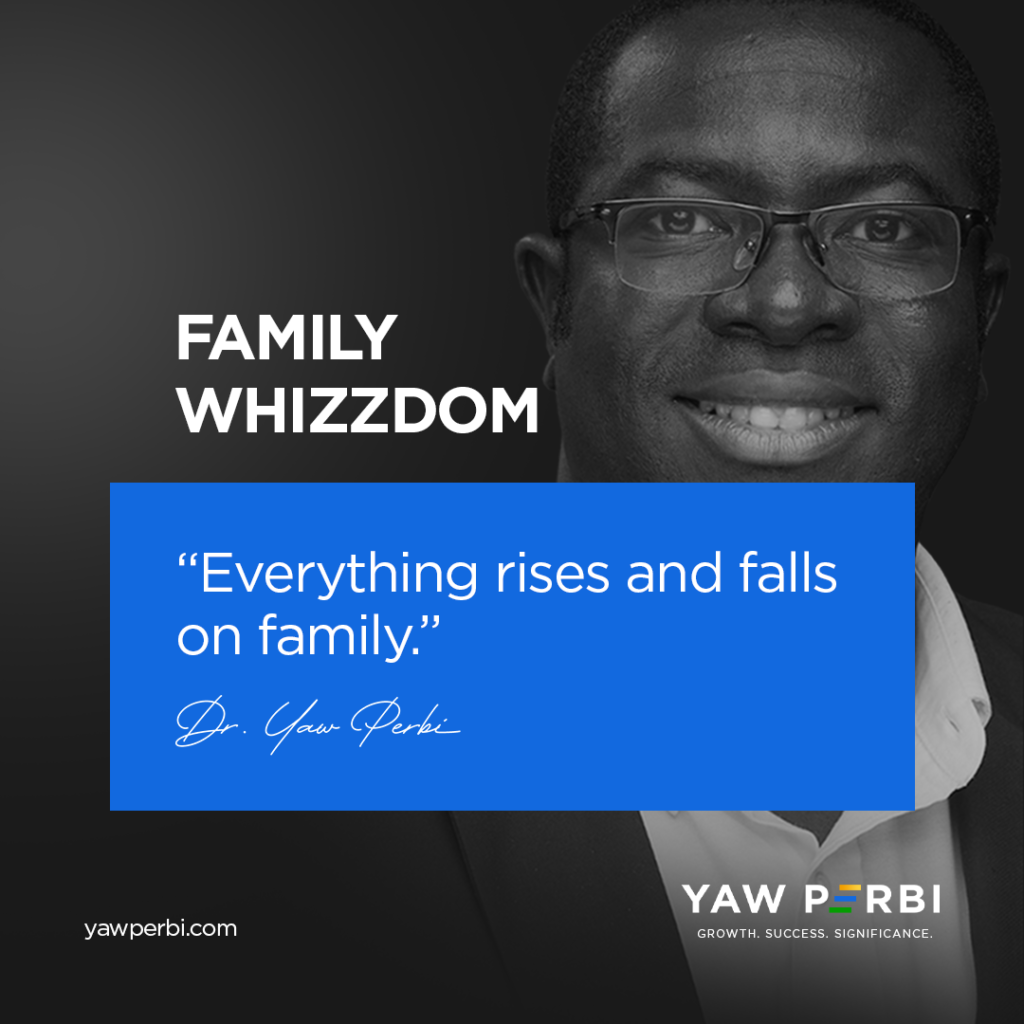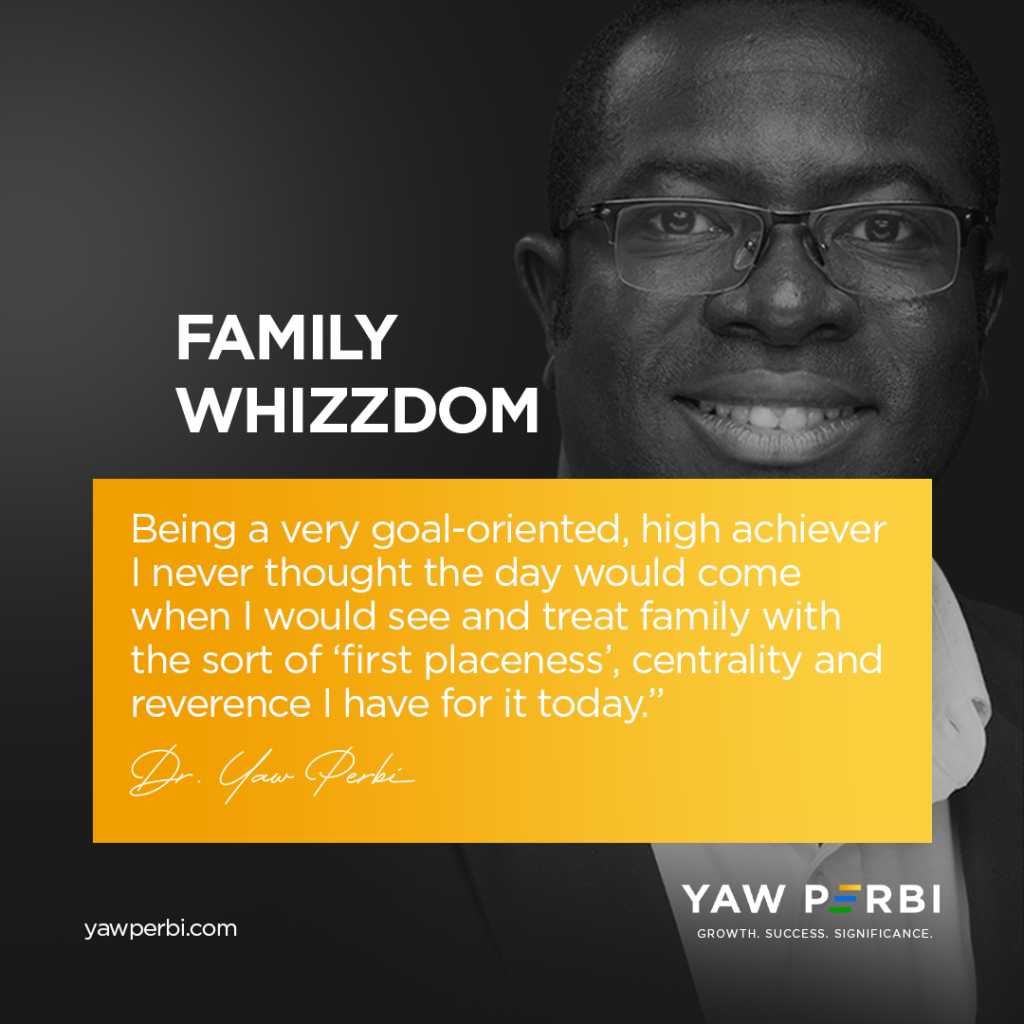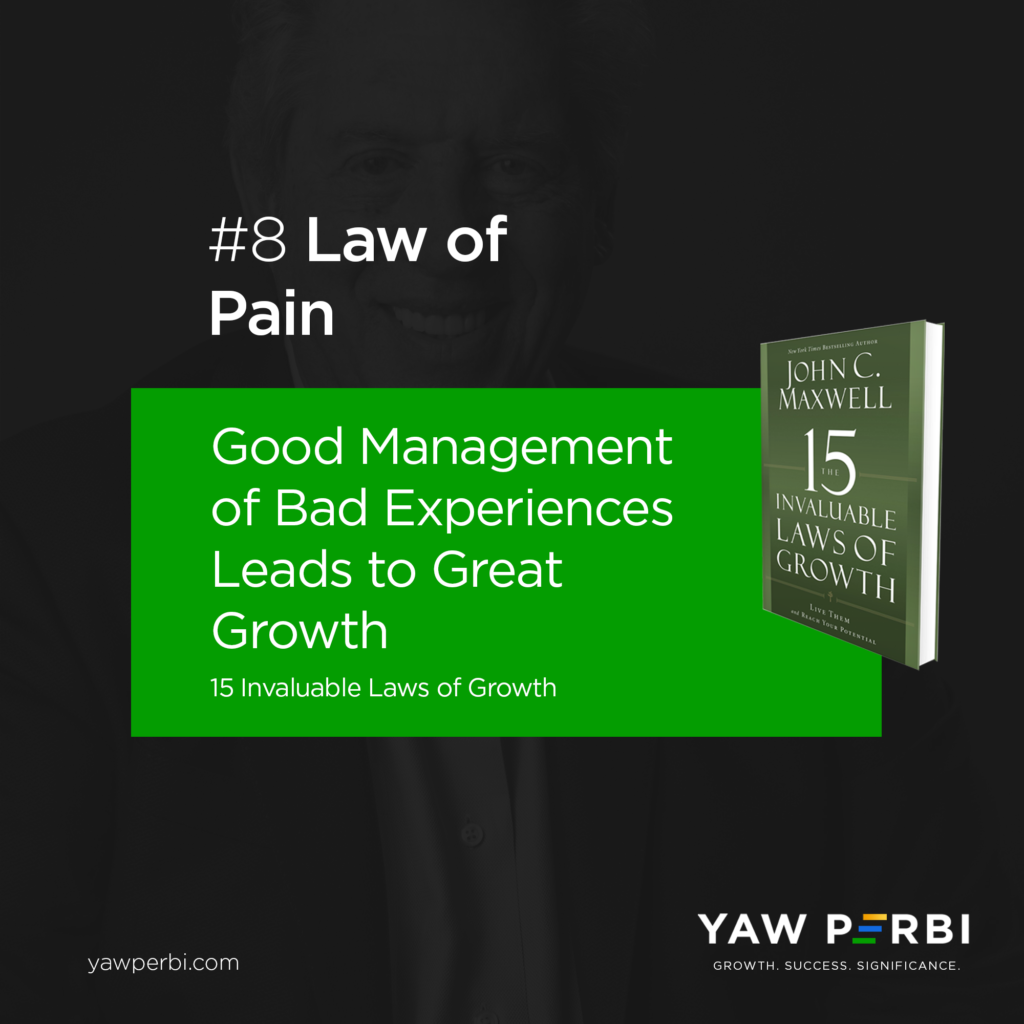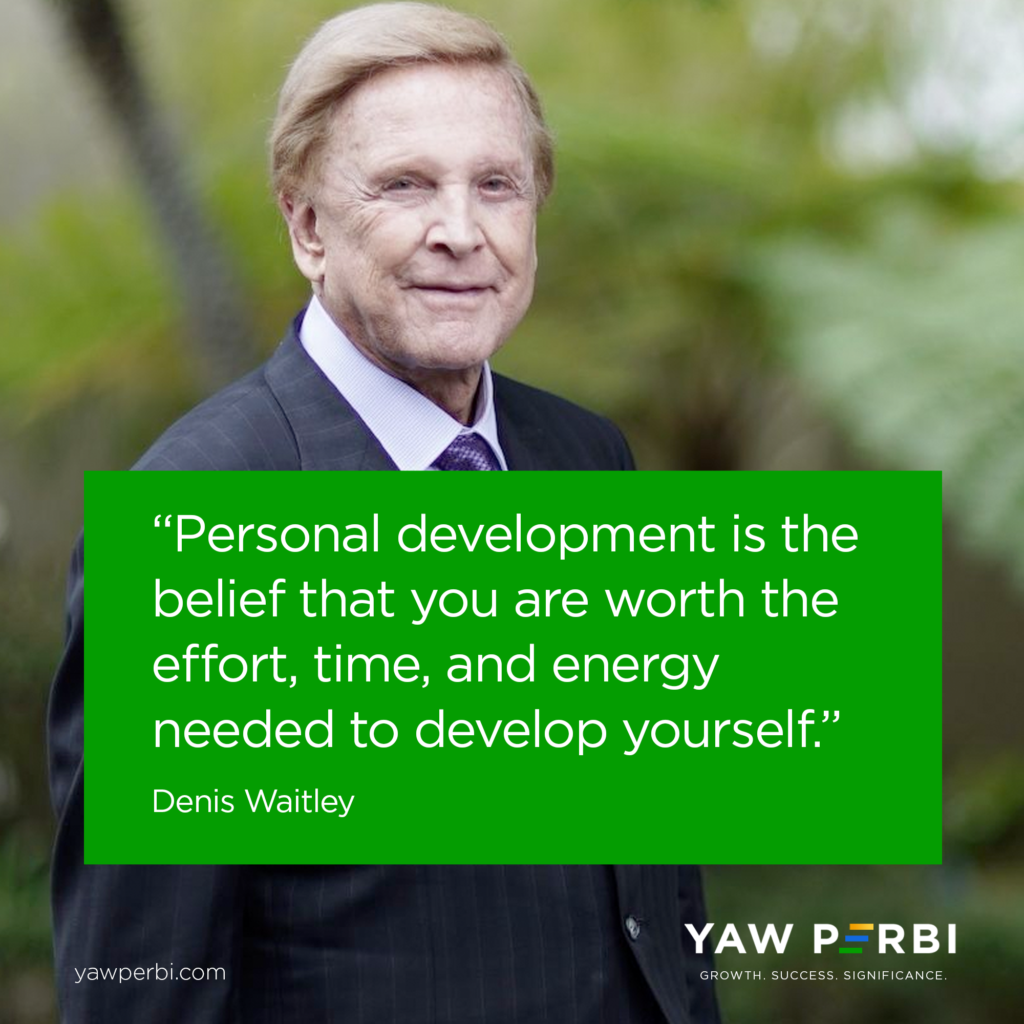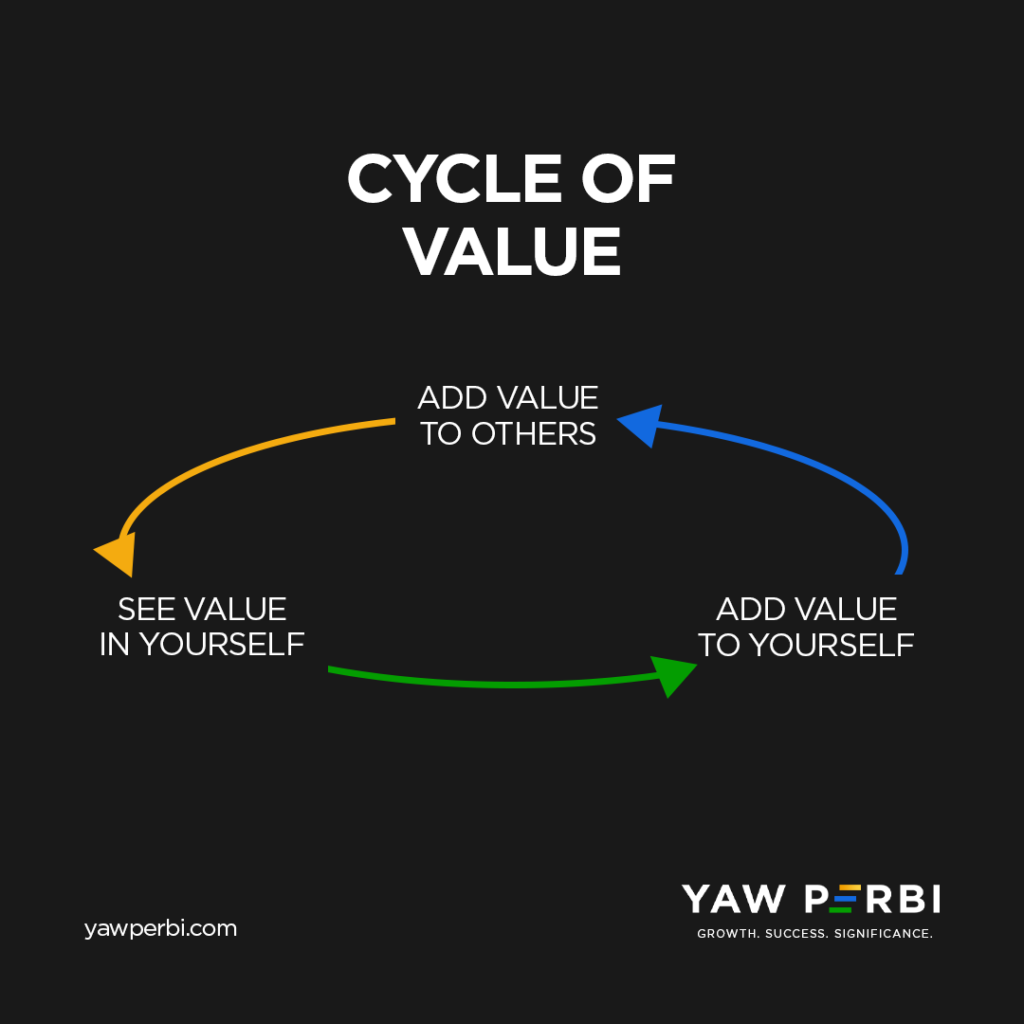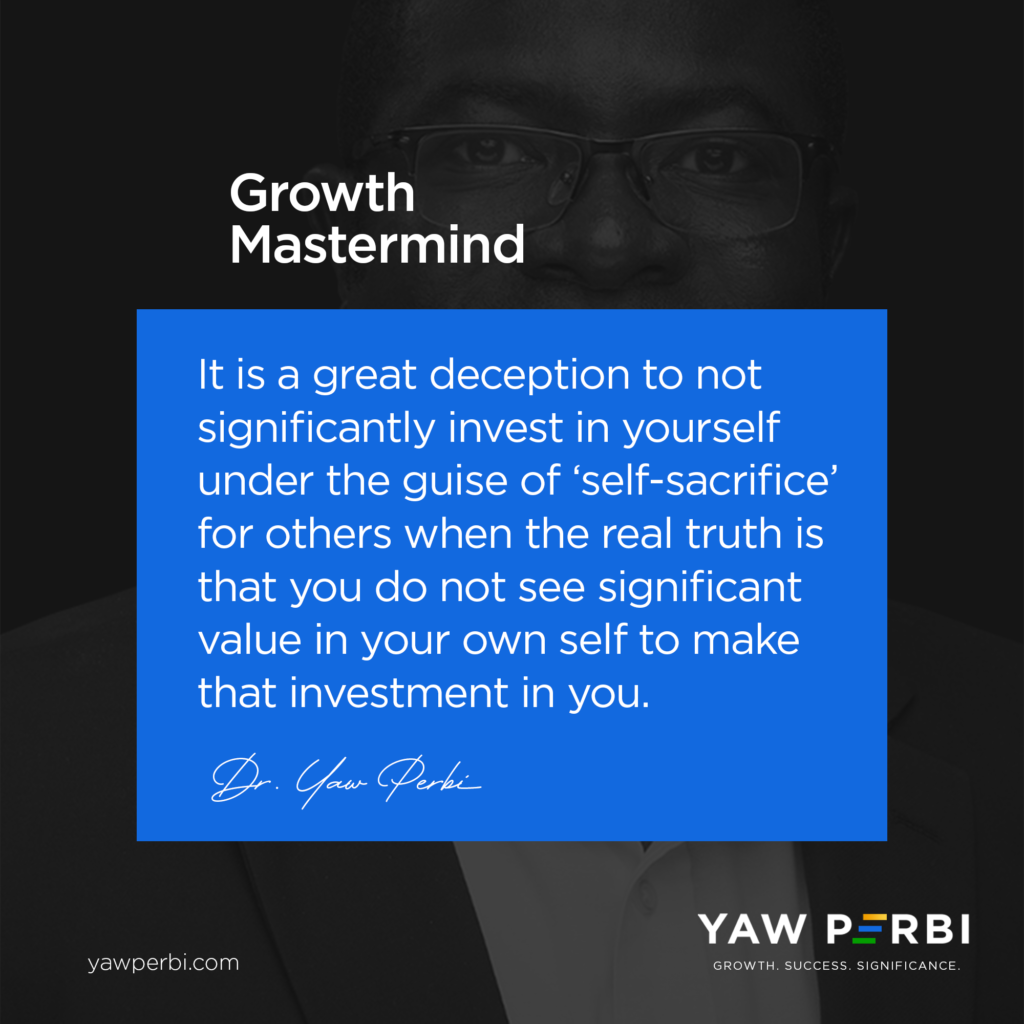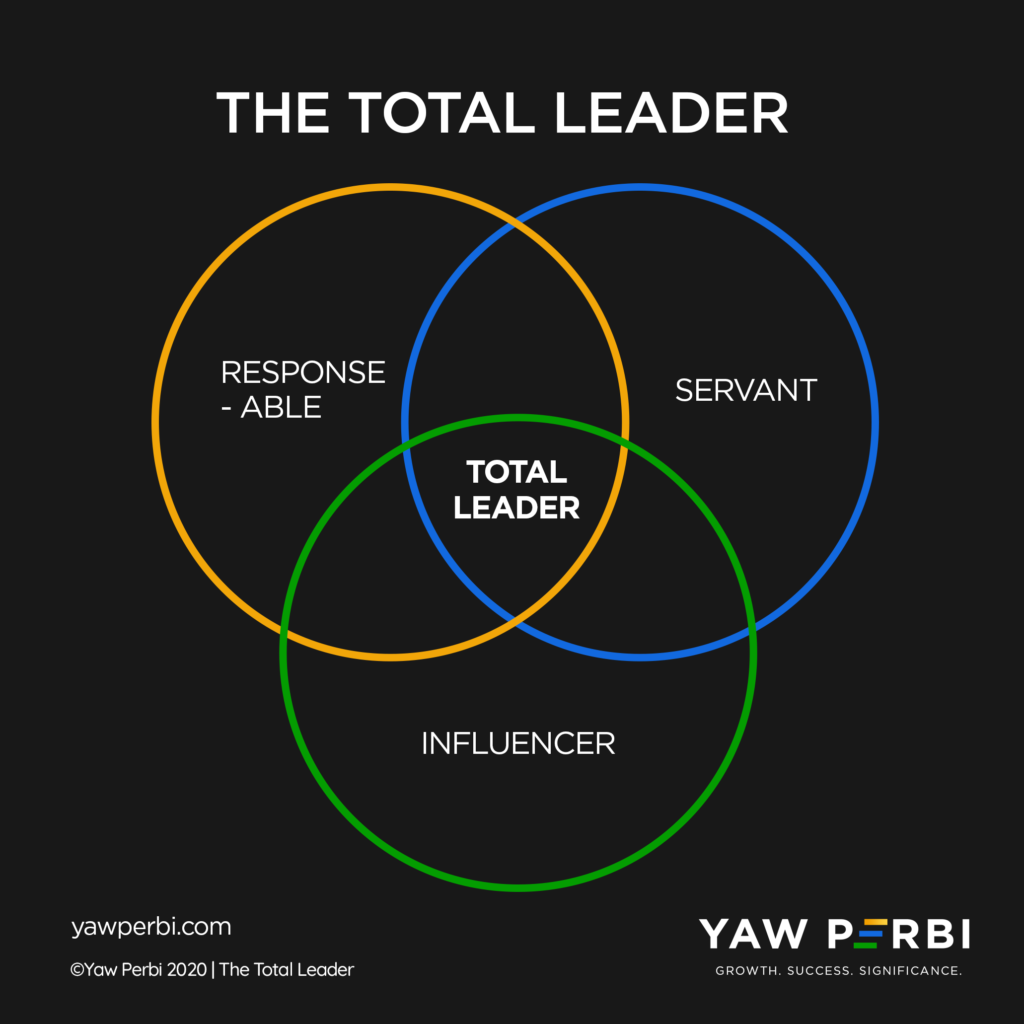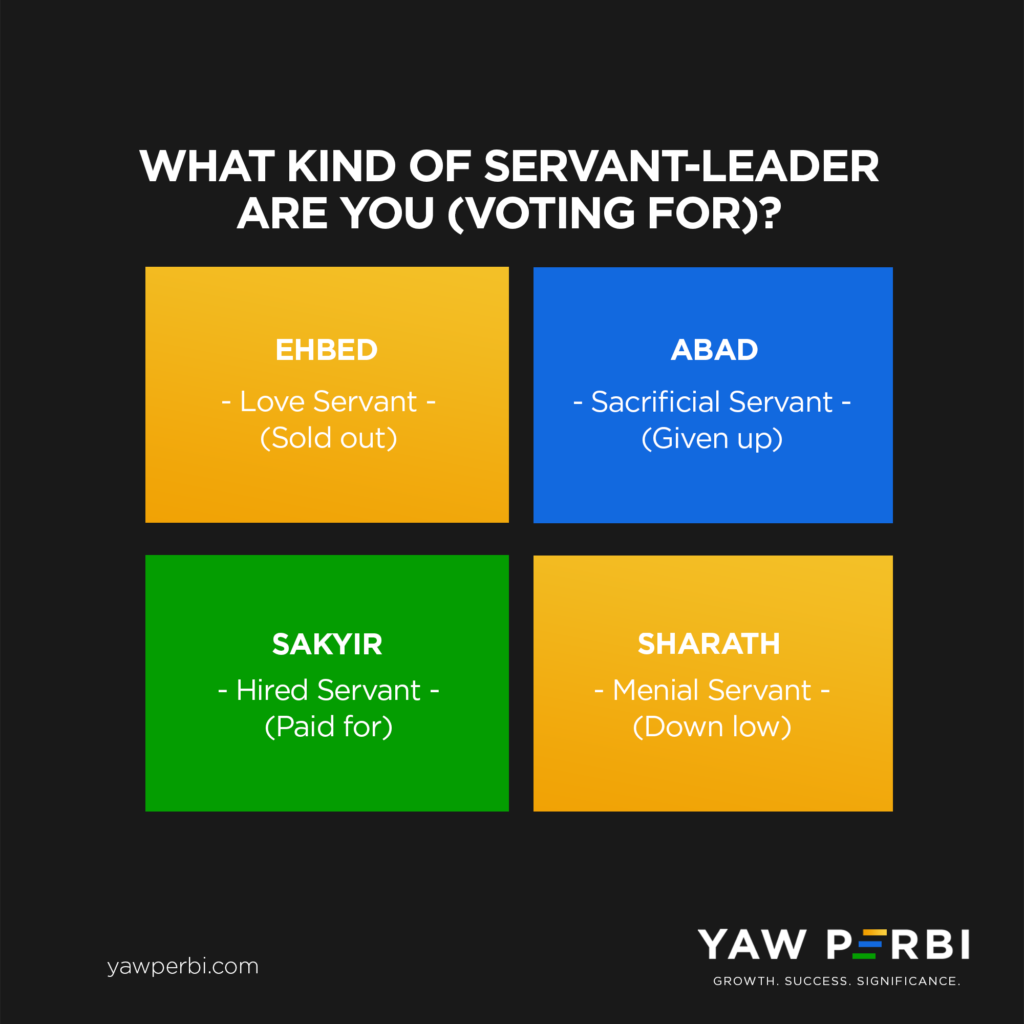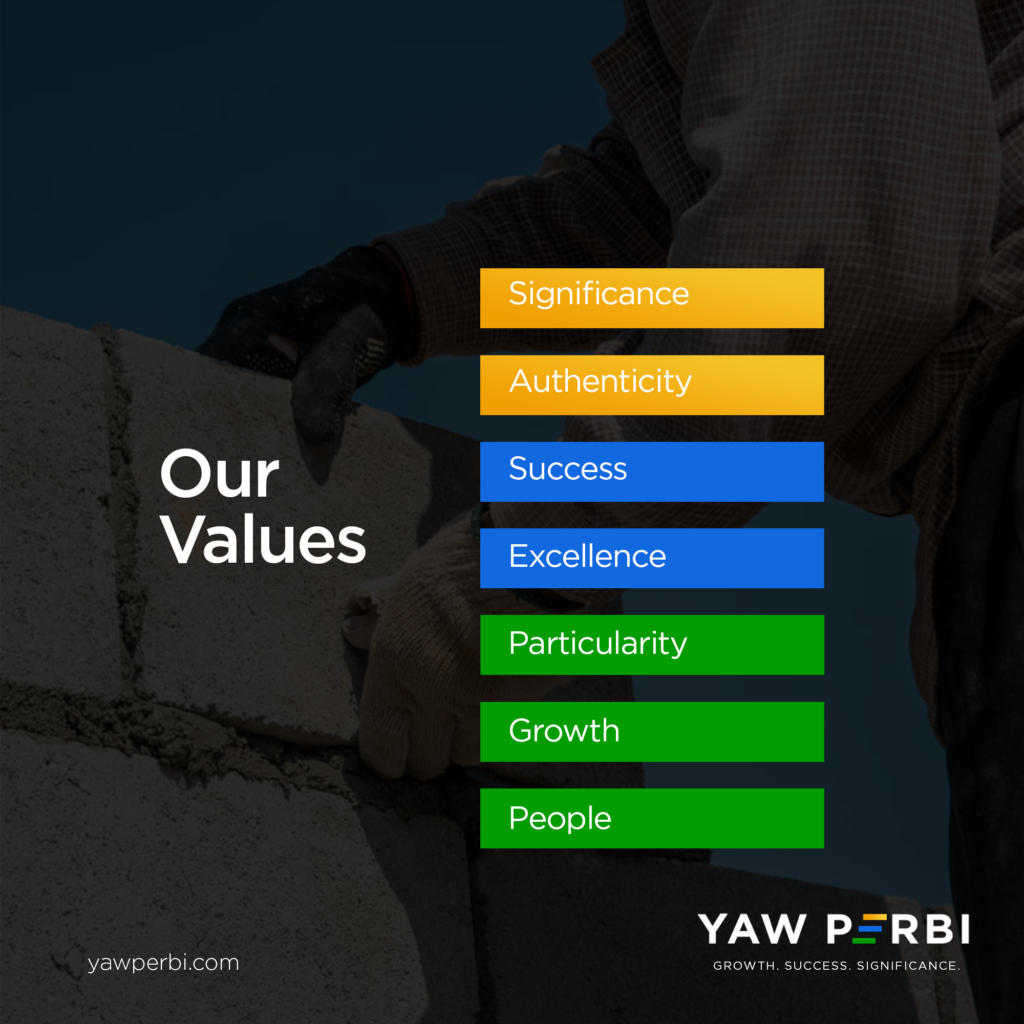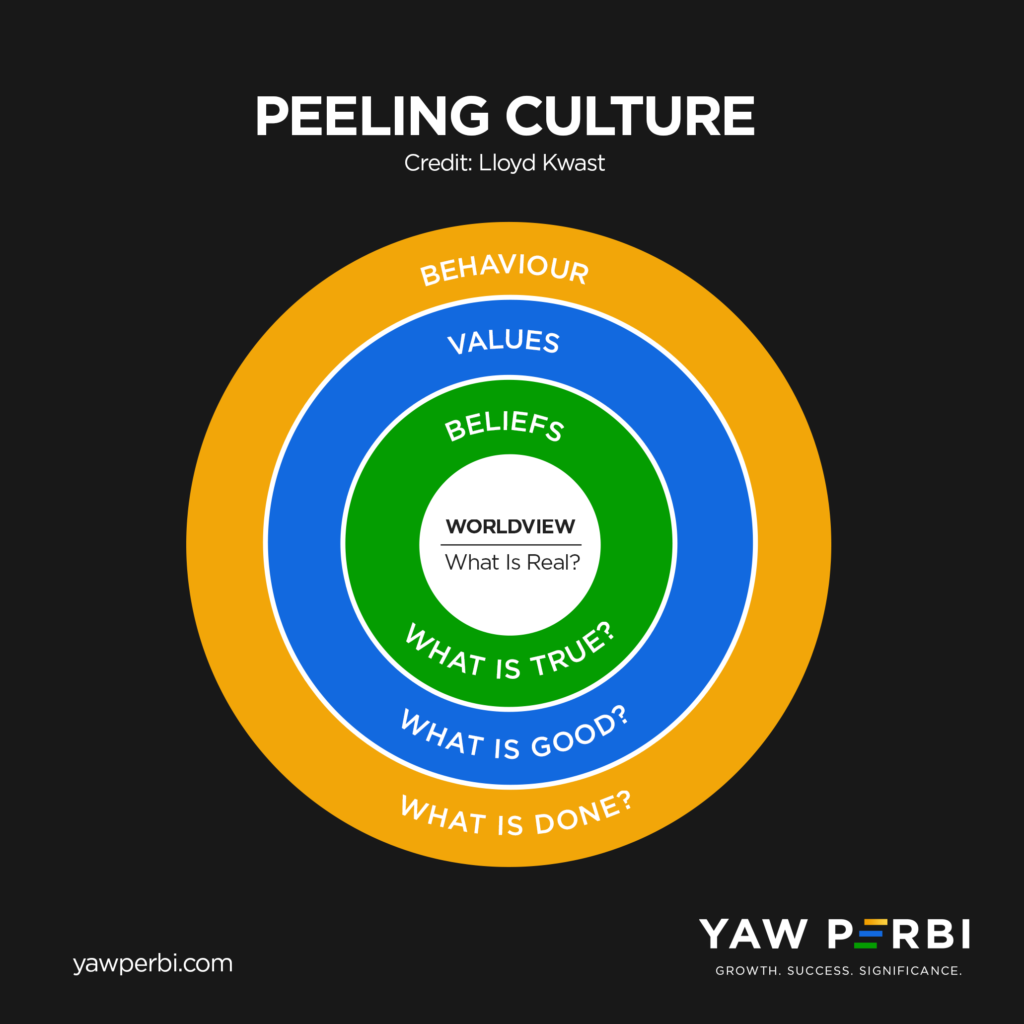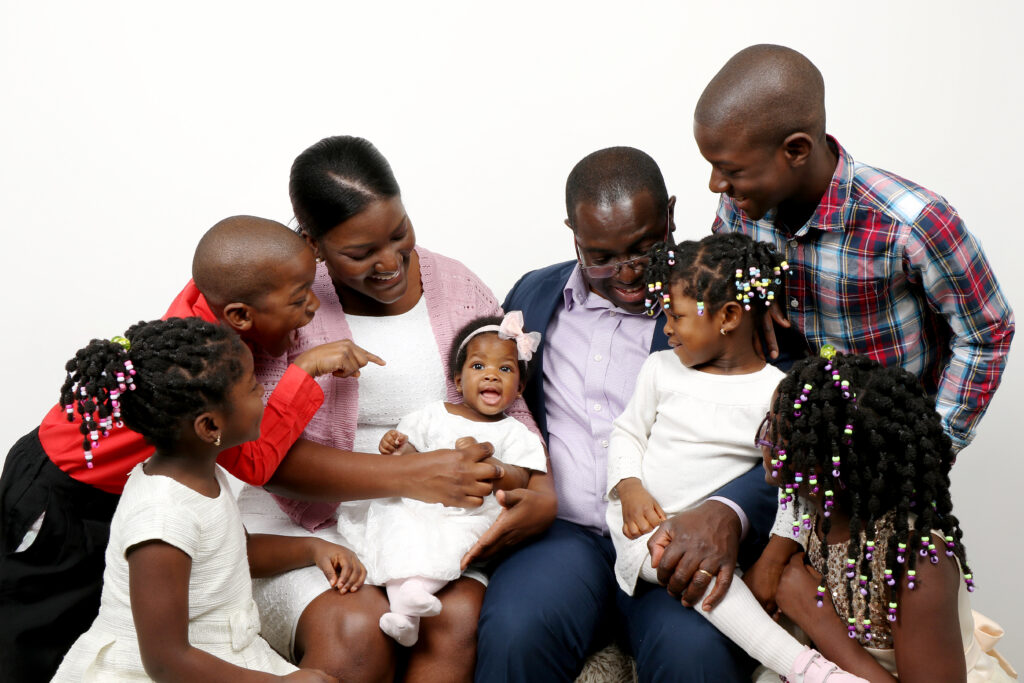
Work harder on yourself than you do on your job.
Over the last week, somehow this notion of needing to work harder on yourself than you do on your job has come up with two or three different coaching clients. For the CEO of a crucial agro business firm in West Africa, the financial services entrepreneur in Canada and the PhD-wielding academic on the east coast of the United States, the three reasons I’m about to share held true. It is true for you too.
For the record, I work hard and believe in hard work. I also work smart and absolutely promote the idea of brain over brawn anyway. Over a decade ago I came up with the phrase, “brain power pays; muscle power pains.” I subscribe to the Pauline exhortation that “whatever you do, work at it with all your heart, as working for the Lord and not for man.” So by all means, work hard and smart on your job, but work even harder and smarter on yourself.
Here are three reasons why:
1. WHO YOU ARE IS MORE IMPORTANT THAN WHAT YOU DO
No matter how hard or smart you work, the instrument for the doing the do is you. If the input into you doesn’t match or exceed the output, that will soon be your undoing. Let me put it in a way one of my staff in British Columbia said it to me a few years ago: “If your output exceeds your input, then your upkeep will be your downfall.” Classic! Not only will you soon not be effective and efficient when your self input is less than your job output, it is unsustainable and you might end up becoming irrelevant. And sometimes, irrelevant not just in terms of knowledge and skills for a context that has progressed because you’re not healthy or even physically alive anymore–you killed the goose that lays the golden eggs!
Consider these sagacious words of educator Palmer Parker:
“When I give something I do not possess, I give a false and dangerous gift, a gift that looks like love but is, in reality, loveless—a gift given more from my need to prove myself than from the other’s need to be cared for…. One sign that I am violating my own nature in the name of nobility is a condition called burnout. Though usually regarded as the result of trying to give too much, burnout in my experience results from trying to give what I do not possess—the ultimate in giving too little! Burnout is a state of emptiness, to be sure, but it does not result from giving all I have; it merely reveals the nothingness from which I was trying to give in the first place.”
Remember, who we are is more important that what you do, because we do whatever we do out of who we are: our identity, character, values.
2. ONE MEANS A LIVING, THE OTHER MEANS A FORTUNE
Classic motivational speaker of blessed memory, Jim Rohn, poignantly put this in a way like nobody else has: “Learn to work harder on yourself than you do on your job. If you work hard on your job you can make a living, but if you work hard on yourself you’ll make a fortune.” This statement, I believe, is a variation of timely advice Jim himself received from his mentor J. Earl Schoaf. Jim had heard him give the reason for why the job only pays the bills but the latter ends in billions: work harder on yourself than you do on your job; your income is directly related to your philosophy, not the economy; and for things to change, you must change.
From a one-year college drop out living from pay check to pay check as a stock clerk at Sears, this advice catalyzed a five-year mentorship of Rohn by Shoaff, encouraging him to develop himself and pursue his dream of a better life such that by age thirty one, Rohn was a millionaire! It was a really sad day when this motivator of motivators like Anthony Robbins, Less Brown, Brian Tracy and Denis Waitley, passed away in December 2009.
Friend, work harder on yourself–from your paradigms through your attitudes to your skills. It’s the software that you carry and apply to a variety of endeavours, not only your job, that will unlock abundant wealth and well-being.
3. JOBS COME AND GO BUT YOU’LL STILL BE HERE
Sometimes people leave jobs; other times jobs leave people. In the kind of post-pandemic economies we have now, more jobs leave people than people leave jobs. Certain whole industries have been wiped out, for crying out loud! I’ve marvelled at how many pilots have been literally grounded and have had to find some other kind of livelihood. What if all you did was work hard on your job and never grew your other interests, talents and skills or even never networked beyond the ‘boys club’ in your profession?
When many years ago I decided to take the path of the risk of entrepreneurship rather than the ‘security’ of a regular paid job, some people who thought I was crazy later found out they had been crazy to think ‘owning a job’ was better than owning a business when in spite of their qualifications, loyalties and skills their jobs were cut. Former Microsoft COO, Kevin Turner, said it best: “The only job security we have is our individual commitment to personal development.” Your job today may not be there tomorrow–in fact your entire industry might not be there–but you will. Work harder on yourself than you do on your job forwhen tomorrow comes, your preparation will meet opportunity. That’s what they call success.
QUICK PRESCRIPTION
Do the following to ensure you are working hard on yourself for your personal growth and development: set aside a time for YOU, a ME time, everyday. Mine is 5-6am everyday during which I read my personal mission statement, review my goals, read for at least 15 minutes and express my thoughts and feelings in writing.
For all the coachees I mentioned at the beginning of this blog, each was working super hard at their jobs. It is my job to ensure that while they do that, they strive towards working even harder on themselves than they do on their jobs. There’s no great future for anyone without that.

Everything Rises and Falls on Family.
My mentor likes to say, “Everything rises and falls on leadership.” This is true but there is something even more fundamental that all leadership itself rises and falls on. I say, everything rises and falls on family first. At least five reasons come to mind why:
1. CREATOR PERSPECTIVE | God is Family
“In the beginning, God…” That’s how the entire holy scriptures begin in Genesis 1:1. I have a theistic worldview as a bonafide African, and a Biblical one at that as an African Christian. My understanding is that everything is created by a Supreme God and that He created human beings in His image and likeness. That tickles my theological senses a lot because according to the Christian view, GOD IS FAMILY. At the centre of the universe is family–Father-Son-Spirit. At the core of cosmos is a love, relationship–Love, Lover and Love itself. Everything rises and falls on love, everything rises and falls on God, everything rises and falls on family.
Of course we could go into how God created the first family after declaring “it is not good for man to be alone,” how throughout scripture and history God chooses a person and their family to work through, the many scriptures that seek to protect, preserve and promote family etc. Even when God decided to wrap Himself in human flesh and move into our human neighbourhood in the person of Jesus Christ, he chose to implant himself in a family–Mary and Joseph’s. Everything rises and falls on family.
2. CRADLE PERSPECTIVE | Parents shape world shakers
Have you ever heard the proverb, “The hand that rocks the cradle rules the world”? That is 1865 wisdom unleashed on the world through the refrain of a William Ross Wallace poem that praises parenthood as the preeminent force for change in the world (see here). Of course, at the time it was written, nearly two centuries ago, the work of raising children was mainly seen as the role of the mother but we know all too well it takes two to tango. Both father and mother have a role in rocking the cradle, even procuring that cradle in the first place. Parents and the wider family, shape the people who would shake and move the world, for good or ill. These two PhDs Barbara Riggs and Cynthia Tweedell don’t mince words in their Marriage and Family textbook: “The strongest influence in your life will stem from family.” Period. Everything rises and falls on family.
3. CELLULAR PERSPECTIVE | Family is the unit of humanity
So yes, “it is the hand the rocks the cradle that is the hand that rules the world” but alas! today, everyone wants to change the world; no one wants to start at home. The irony! Not only does everything rise and fall on family because the hand that rocks the cradle rules the world but also the family is the basic unit of society just as the cell is the basic unit of biological life or the atom is for all matter. Yet somehow we think we can flourish in the corporate world, government and such without adequately addressing the lowest common denominator!
If you think one cell gone bonkers is no big deal think again about cancer. That’s all it is. Cells gone bonkers, multiplying unhealthily–and eventually spreading that craziness (metastasis). Sooner or later a whole monarch or president or parent dies, all because of a cell gone awry. Everything rises and falls on family, that one cell.
4. CALCULATION PERSPECTIVE | Hindsight is 20/20
Today’s C-level executive claims “It’s not the quantity of time but quality that I spend with my family that matters.” This is a fallacy. Family costs what it costs and it doesn’t go on sale! The question is if we are willing to pay the price.
Even for the richest and most popular of leaders, when they assess their lives, doing a calculation of all they’ve spent their talents and energies, time and finances on, the truth remains that, “There’s no one who on their deathbed has been heard to say, “I wish I had spent more time at work.”” What folks should’ve known first, they only find out last: Everything rises and falls on family.
5. COVID-19 PERSPECTIVE | The only place to be/go has been home.
When our all-important selves on our all-important endeavours were brought to a screeching halt by the latest Coronavirus pandemic, where did we all head? Home! When literally every economy and society locked down, where did we stay put and be safe: with family! I’ve never seen so many advertisements on primetime television asking people to stay home in my life! Heroes, according to the World Health Organization, stay home! Ha! Who would’ve thought that day would ever come!
Even high-flying pilots have been grounded, literally, at home. I haven’t flown in a year–that is crazy considering that there were times in the last few years when I did as many as 70 flights in the year! My VIP airport lounge passes and platinum airline and hotel statuses have been rendered useless. The only thing that has mattered most has been the people many of us paid the least attention to prior to COVID-19: family. Of course, some families have turned at each other and self-destructed because of the very forced proximity that should’ve been a blessing!
Crucibles reveal what’s most important. After this pandemic is over, we would need insignia to remind us, lest we forget, everything rises and falls on family.
THE MILLION DOLLAR QUESTION
So why then do many, too many, in our generation tend to put family on the backburner? What if we all invested in our families the same degree of seriousness we put into our professions or in climbing the corporate ladder? I’ve been amazed at how many C-level executives are executing vision and mission statements and strategic foci for their organizations but have not given a thought to forging a simple family mission statement yet alone execute it.
Granted, some people really want to give their families their best shot but they just don’t know how or don’t have the tools to. Since Anyele and I welcomed our seventh child into the world, we’ve had so many puzzles and questions thrown our way that we’ve decided to hold a free online session from time to time for various folks to share our hearts, heads (ideas) and hands-on stuff (skills) about family, theirs and ours! Would you believe after our first 2021 15 Laws of Growth Mastermind through January and February the one thing that made all these participating professionals vote for an extra/bonus Mastermind session, which I obliged to facilitate for free, was family?
In one of the quarters of each year, my coaching company will run a 60-day journey through powerful principles of family foundations in a paid mastermind group for healthy family growth, based on ancient wisdom, current family systems theory and practical tools that work! This will be targeted at C-level executives comprising weekly 90-minute online sessions for eight weeks with lots of readings, video clips, assignments, inspiration, encouragement and accountability throughout the weeks! Each week, a unique practical skill will be learnt to better our relationships.
Family: everyone has one–no matter how dysfunctional or atypical. Even if we don’t form one of our own (family of procreation), everyone comes from one (family of orientation) that we didn’t choose. I confess that being a very goal-oriented, high achiever myself, I never thought the day would come when I would see and treat family with the sort of ‘first placeness’, centrality and reverence I have for it today. Perhaps if others also had a paradigm shift that everything rises and falls on family, everything would change too.
What do you think?

Black History Month | Africa Leads the World
There is no talk of Black History without faith, especially the Christian faith. PBS recently released a fascinating Henry Louis Gates Jr. documentary on the Black Church. What some dubious people tried to oppress and suppress black people with became the very thing that liberated us and is now giving us a global leading edge.

Send Africa is an evolving missions network whose DNA and launch YAW PERBI is privileged to help shape and midwife
Africa is the most Christian continent in the world today. The year 2018 was the first in history where there were more Christians in Africa than on any other continent in the entire world! (Johnson 2018) THIS IS A BIG DEAL!—this is a one-thousand year record held by Europe that has been broken by Africa in our lifetime. That makes me super excited about Black History Month this year because history is being made right now. As you read this, a number of continental Africans and those of African descent in the diaspora have synergized to birth a new network known as Send Africa to promote further faith formation among ‘unreached people groups’ around the world.
At the formal launch of this Send Africa Network online on February 24-25 during this 2021 Black History Month, my Kenyan friend, Sam Ngugi, and I will be launching a ground-breaking book entitled Africa to the Rest to celebrate this huge feat of Africa becoming a leading global force of faith to the rest of the world. This book is to “celebrate this momentous occasion in world history that has been inadequately highlighted by mainstream missions and missions. It traces some of God’s goodness to Africa in the Bible and throughout history until now to make clear that Africa and Africans have been central to God’s missional purposes; not an afterthought.” You may register for the Send Africa Summit here.
CAPTURED & DISTORTED HISTORY
Of course Africa features in the Bible from start to finish. There were actually two black guys (among the five) that played hands on the apostle Paul and commissioned him on his missionary journeys (Acts 13). Africa is the cradle of monasteries and ecumenicsm. The term Trinity came from Tertullian the Tunisian. St. Augustine was from Algeria, and not a European as we were made to believe growing up in Africa.
As Sam and I state in our book, “People consider Christianity as the white man’s religion to oppress the African due to the last 500 years of Euro-American missionary activity mixed with colonialism without realizing that the first 500 years A.D., Africa was so synonymous with Christianity that one of the most common terms for Christians in Arabic sources is afariqa–indicating a significant degree to which “Christian” and “African” were synonymous concepts (Merrills 2004, 303).”
In fact, the subtitle of our book is “from mission field to mission force (again)“ because Africa(ns) as a mission force first impacted Europe with the Gospel! That notion that Africa first evangelized Europe is the essence of Thomas Oden’s book titled How Africa Shaped the European Mind. “My core hypothesis,” Oden himself says, “is that much intellectual history flowed south to north: from Mumidia to Sicily to France and Italy. It flowed from the Nile to the Euphrates and the Danube. It flowed from Pelusium to Gaza to Cappadocia. …There is ample evidence available that the seeds of African orthodoxy have been lifted by high winds to distant northern climes. Only much later have they returned to Africa in a Western guise.”
Only a century ago, at a world missionary conference in Edinburgh, not only was there no continental African there as a delegate, we were described as “heathen” in need of being saved. Today there are more Anglicans in Kenya than in England. At the time, the continent had 9 million Christians while Europe was home to 406 million. Today, Africa has over 630 million Christians, a clear 30 million more than Latin America in second place with Europe in third place with 571 million Christians. And it’s not a nine-day wonder, for by 2050 (Deo volente), there will likely be more Christians in Africa (1.25 billion) than in the next two continents combined! (Johnson 2018)
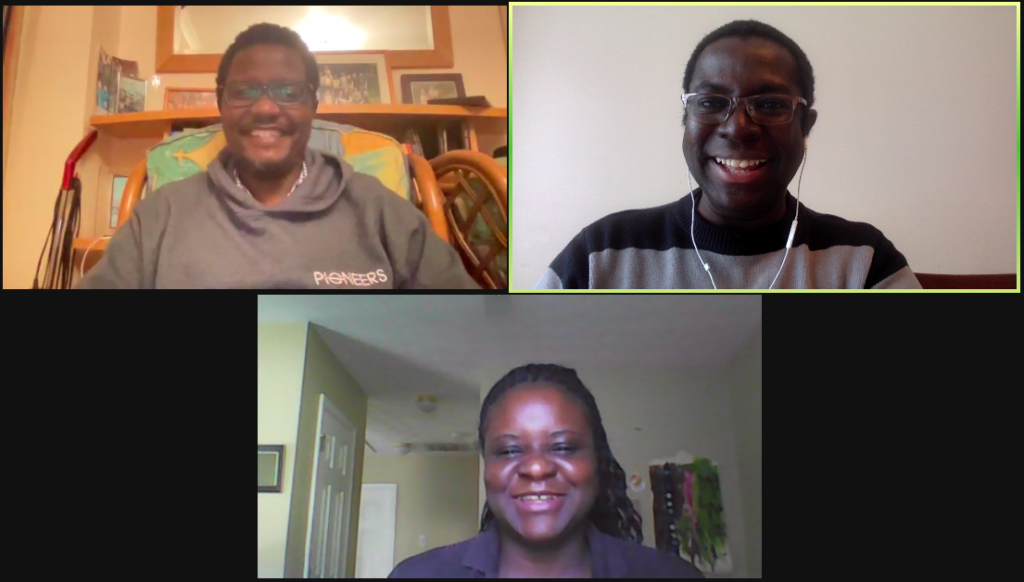
The all black ‘Africa to the Rest’ team of two writers and an editor on a Zoom call from Canada, the USA and England
UNDENIABLE PRESENT
It is good to know that Africa leads the world in something. There are churches that began in Africa and are in 198 countries now. The largest congregations in Europe are pastored by Africans, like Sunday Adelaja’s in Kieve, Ukraine. The most multinational congregation in the world—108 nationalities—was founded by and pastored by my good friend and mentor in Vancouver, Canada, Dr. Sam Owusu. I could give you a list of about 10 global mission organizations–including the Navigators, SIM, Langham Partners and SIL–currently led by Africans!
Why is all this important? For many reasons but three will suffice for now. First, black people have been part and parcel, even central, to the purpose and mission of God unlike others have tried to make us think. We are equally made in the image and likeness of God as anyone else. We ought to rejoice and while not bragging about ourselves, ‘make our boast in the LORD.’
Secondly, the Christian faith is authentically African. As one scholar put it, Christianity is a beggar looking for clothes in whatever culture it goes into. The fact that it was captured by Europeans and Americans and tailored as a tool of oppression of blacks in slavery, colonialism etc. is simply not right (not the authentic Christian faith) and doesn’t make the faith the preserve of the white man either.
Finally, the business world and other sectors in Africa that are trying to make a mark on the world stage could learn a thing or two from the African Church that leads the world in faith today, hands down.
THE FUTURE HAS COME
I come from a long and rich family history of black (hi)story tellers. My grandfather was an emeritus professor of ethnomusicology and my mother is a professor of history with a specialization in the slave trade. I feel privileged to take my turn to tell stories of African leadership, and in this particular case, leadership in faith, church and missiology.
The assassinated Congolese nationalist leader, luminary and first Prime Minister of the Democratic Republic of Congo, Patrice Lumumba, must be smiling in his grave that the day he prophesied is here: “The day will come when history will speak. But it will not be the history which will be taught in Brussels, Paris, Washington or the United Nations… Africa will write its own history and in both north and south it will be a history of glory and dignity.” The day has come!
For those of no faith and saying to themselves “who cares if Africa is the most Christian continent?” because we’re yet to see it tell on our socioeconomic indicators or the millennium development goals, just you wait. Works soon follow faith. Unless it’s not true faith; because faith without works is dead.
References
Johnson, Todd M., Gina A. Zurlo, Albert W. Hickman, and Peter F. Crossing. “Christianity 2018: More African Christians and Counting Martyrs.” International Bulletin of Mission Research 42, no. 1 (January 2018): 20. doi:10.1177/2396939317739833.
Merrills, A. (Ed.). (2004). Vandals, Romans and Berbers: New Perspectives on Late Antique North Africa (1st ed.). Routledge, 303. https://doi.org/10.4324/9781315235127
Oden, Thomas. 2007. How Africa Shaped the European Mind, Downers Grove: InterVarsity Press, p.71.
Perbi, Yaw & Sam Ngugi. 2021. Africa to the Rest: from mission field to mission force (again). Forthcoming. Xulon Press.
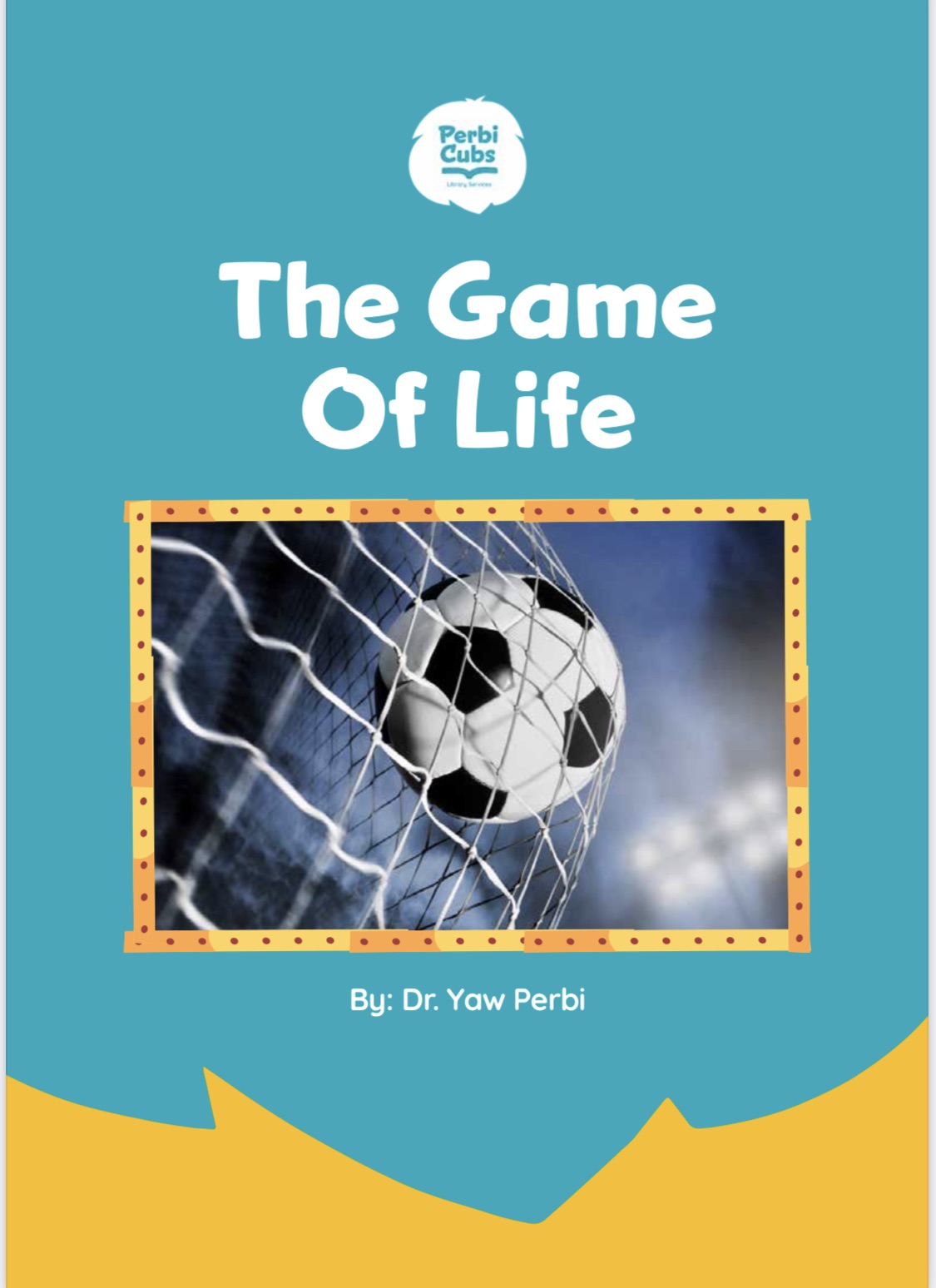
Life is Like Football | There’s No Winning Without Goals
The content of this blog was first published for patrons of Perbi Cubs Library Services. I feel compelled to largely reproduce it here (with tweaks) because of the alarming rate at which adults (including parents of these cubs) are feeling jaded by goal-setting. Perhaps like the greatest teacher who ever lived put it, our attitude should be like children in order to best learn.

Front cover of original book for Perbi Cubs
“GOOOOOAL!!!” It is not uncommon to hear the whole city or town where you live roar “GOOOOOAL!!!” This is when the favourite local or national football team scores a goal. Sometimes the whole city is dead silent, like a cemetary, because people are anxiously watching the game at the stadium or on television. Some even combine listening to radio commentary with watching television pictures at home! There are barely cars on the road or people in the street. You would think it is a ghost town if you were a visitor passing through until all over a sudden you are jolted by the loud roar “GOOOOOAL!!!”
There will be no point of the game of football without goals. And that is why there are goal posts with a net to capture the ball. The way to get ahead in the game is not all the activities of passing the ball, dribbling, somersaulting or even striking the ball hard and strong but getting the ball into the opponent’s goal posts. The goal of football is to win by scoring goals. Otherwise, all the activity does not mean any accomplishment!
And it doesn’t matter if you are not a football fan. The principle is the same, whatever your favourite game or sport is. Is it basketball, tennis, or swimming? What is the point of the game or sport? How do you keep score? Is there any way to determine who won without keeping score?
LIFE IS LIKE FOOTBALL
It is hard to imagine a game without goals yet many people play the game of life without any goals. No matter how important games or sports are, they are not as important as life itself. So if even football has goals to win how much more should we set goals in life to win at the game of life! And using the notion that Covid-19 derailed much of our goal-setting in 2020 so setting goals is of no use anymore is as ridiculous as saying because a certain football match was rained off (or postponed because there was an earthquake) there should be no more football in future. You must’ve heard before that extreme cases make bad laws.
You may also have heard it before that “if you fail to plan, you plan to fail.” There is nobody I know who plans to fail in life but if they fail to plan, they are automatically planning to fail. You may be very busy in life or working very hard but remember, activity does not mean accomplishment. And without goals, you cannot measure accomplishment.
WHAT A GOAL IS AND HOW WE FAIL
A goal is an aim; an end. A goal is the result to which your activities or effort is directed because activity is not necessarily synonymous with productivity. In a game like football, the goal is physical and obvious. In life, one has to be more intentional about what goals are. Mentor Maxwell calls a certain principle the Law of the Rubber Band: “growth stops when you lose the tension between where you are and where you could be.” So we all need stretch goals! For goals to grow you,“a goal should scare you a little, and excite you a lot,” says Joe Vitale. It is quite the art trying to gauge the best tension because either extreme–too easy or too hard a goal–and we loose the tension in our life’s rubber band (so-to-speak). We’re either too lose and useless or too taught and snap–useless too. We hit nothing when we don’t get the tension right. The goal should stretch but not break us. More about this in my next blog.
The other thing I’ve learnt recently is the best chance of meeting a goal is to set it in line with your personality type (take the DISC personality assessment now if you haven’t). While the high I (sanguine) might be motivated by making a game of goal-setting and rewarding themselves to hit their goals if the high D (choleric) finds a goal whose accomplishments puts her “in charge” (they love control) she will breeze through hers!
IN WHICH AREAS SHOULD WE SET GOALS?
We should set goals in every area of our lives. If we do then we can have all-round success. The greatest leader who ever lived, Jesus Christ, lived a holistically successful life in part because as a little boy, “Jesus grew in wisdom and stature, and in favor with God and man” (Luke 2:52). So we too must set goals in:
-“wisdom” (mental goals)
-“stature” (physical goals)
-“favour” with God (spiritual goals)
-“favour” with man (social goals).
Mental (academic) goals: These are learning goals. A good example of a mental goal may be to pursue a Master’s in business this year .
Physical goals: These are health and wealth goals. A good example of a physical goal may be to eat a fruit everyday this year or to exercise 30 minutes a day at least thrice every week.
Spiritual goals: These have to do with your relationship with God. A good example of a spiritual goal may be to read your Bible and pray everyday.
Social goals: These are about relating to people. A good example could be to institute date nights with your spouse or check on your ageing parents each week.
GOALS MUST BE S.M.A.R.T.
Can you imagine if the goal posts in a game of football weren’t clear? Can you imagine if they could be anywhere on the park at anytime? Also can you imagine if you had no idea how much time you had in the game to score goals and win? Just when you think you have 30 minutes the whistle goes to your surprise within two minutes?
In the same way, the more detailed and sure the goals you set in life are, the better. For us to be able to hit our goals in life, these goals must be S.M.A.R.T. This means they goals should be:
–SPECIFIC: Don’t just set a physical goal like “I want to be healthy.” Be specific by saying, “I will eat fruits to be healthy.”
–MEASURABLE: How many fruits? A bunch of bananas or a dozen oranges? So to make the goal measurable say, “I will eat a bunch of bananas or two dozen oranges to be healthy.”
–ATTAINABLE: The goal should be something you can accomplish. It must be reasonable and realistic. Eating a whole bunch of bananas or two dozen oranges everyday isn’t reasonable. To make your goal attainable, say, for example, “I will eat one banana or one orange to be healthy.”
–RELEVANT: No one should set goals that do not add value to their lives. So ask yourself if this goal adds real value to your life. Is it relevant to be healthy by eating a banana or orange? Yes indeed! This one is a no brainer.
–TIME-BOUND: You must determine if this goal is daily, weekly, monthly, yearly, in five year’s time etc. So to complete making your physical goal Time-bound, you could say, “This year, I will eat one banana or one orange everyday to be healthy.”
LET’S GO LET’S GO!
So! Life is like football. In order to win, you’ve got to have clear goal posts and score goals! Set your goal posts now by setting S.M.A.R.T. goals for the year, quarter, month, week and even today. Score your goals and win in life. That’s the path to success. And yes, you are free to also roar “GOOOOOAL!!!” when you hit your goals too. “GOOOOOAL!!!” Life is like football. You’ve got to have goals to win it.
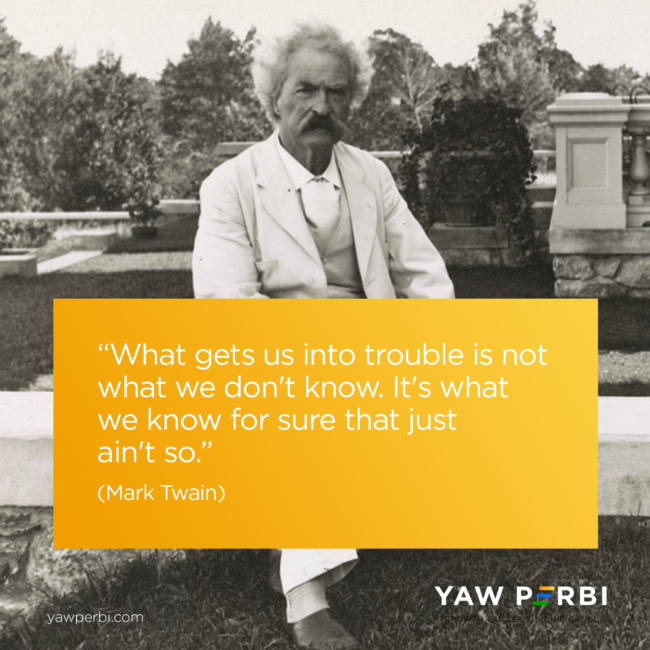
A Way to Prevent Heartbreak: Clarify Expectations
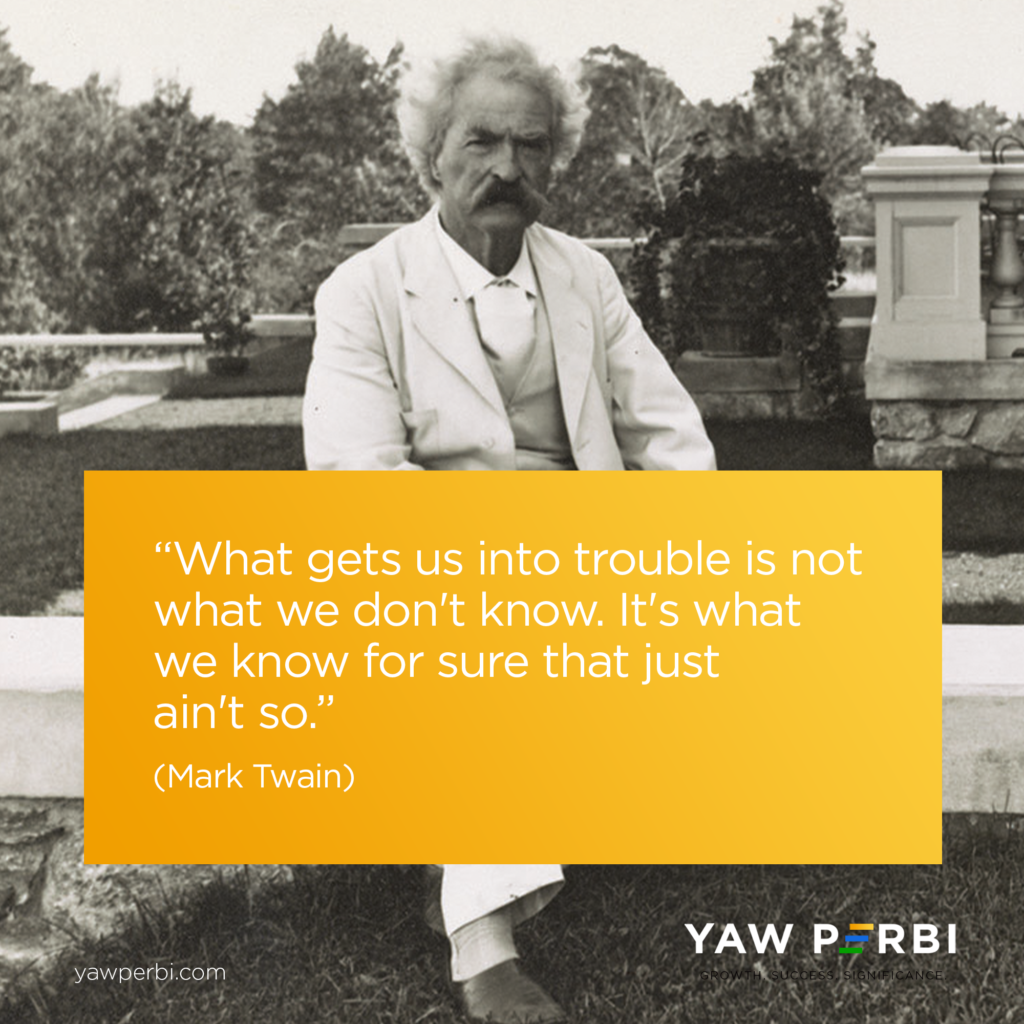
While what you don’t know may kill you; what you think you know but really don’t may kill you faster!
I have wanted to talk about this for months–how to prevent unnecessary hurt from unmet expectations–but last week an incident happened with one of my associates that really catalyzed me to share this urgently. So let’s talk about unmet expectations.
Whether it’s between spouses, parent and child, boss and workers or even among co-workers, family folk and church members, this is quite a common occurrence. This is particularly so African, Chinese, Japanese and Korean cultures that employ indirect communication. If you’re like me, you’ve probably been hurt before by unmet expectations. In fact, sometimes we don’t even realize we had an expectation until it was not met!
Mark Twain once said, “What gets us into trouble is not what we don’t know. It’s what we know for sure that just ain’t so.” We tend to have expectations that are unconscious, unrealistic, unspoken and unagreed upon. Let me share how you can flip these four things around and protect your heart against heartbreaks from unmet expectations. I owe this life-saving lesson from my New Yorkan mentors, Pete and Geri Scazzero.s
THE MILLION DOLLAR QUESTION
How do you know your expectations are valid or not? As hard-to-take as this may seem, when the expectation is unconscious it is invalid. In fact, if even we don’t even know we have them until we are disappointed how on earth is the other person supposed to know and meet it? When it is unrealistic it is invalid as well. Even if it is reasonable and we are conscious of it but it has not been articulated, it is still invalid. The common lame excuse we tend to give is, “Oh, but they should know?!”
In the event that our expectations meet all the above three criteria–conscious, realistic, spoken–but the other party has not agreed to them, they are still invalid. While this may seem very Western, I have learnt as an African-Canadian that it is never wise to assume agreement!
Of course, important caveats include marriage (where the vows already spoken have created certain clear expectations like fidelity), parent-child relationships (expectation of chores) and employer-employee dynamics where expectations have been clearly laid out in contracts and policy and supposedly read and accented to. Even in these relationships with broad-stroke expectations, situations occur that demand clarifying expectations further.
WHAT TO DO TO FORESTALL HEARTBREAKS
To prevent heartbreaks from unmet expectations, ensure your expectations are:
(1) Conscious: I am aware of my expectation.
(2) Realistic: I have evidence to support that the expectation is reasonable in the sense that the other is able and willing.
(3) Spoken: I have expressed the expectation clearly.
(4) Agreed Upon: The other person has agreed to the expectation by saying “yes.”
I would highly recommend you take the Scazzero’s Emotionally Healthy Relationships course for a full meal and good skill-building in this area they call Stop Mind Reading and Clarifying Expectations.
WHAT TO DO WHEN HURT HAPPENS
In the event that hurt still happens from unmet expectations, valid or not, REFRAMING the painful experience is everything. As John Maxwell renders it in the Law of Pain, “good management of bad experiences can lead to growth.” Reframe the painful experience as follows (modified from a Maxwell process):
a) Define the problem –> The painful situation I need to process right now is…
b) Understand your emotion –> My feelings about this are…
c) Articulate the lesson –> My lessons in is this are…
d) Identify a desired change –> The changes I want to effect are…
e) Brainstorm numerous pathways –> The ways out are…
f) Receive others’ input –> What I’m learning from others is…
g) Implement a course of action –> My course of action is 1. Embrace the reality of pain 2. Learn my lesson(s) 3. Share my lessons 4. Change a. ______ b. ______ c. ______ d. _____.
CONCLUSION
You know what they say happens when you assume: you make an ass of u and me. An expectation is only valid when it is mutually agreed upon. Let’s do less heart damage by providing and demanding clear expectations of others. Let’s ensure in all our relationships that our expectations are conscious, realistic, articulated and agreed upon. And when things fall through the cracks and we feel the sting of pain from unmet expectations, let’s reframe the experience well so we can still grow and flourish.
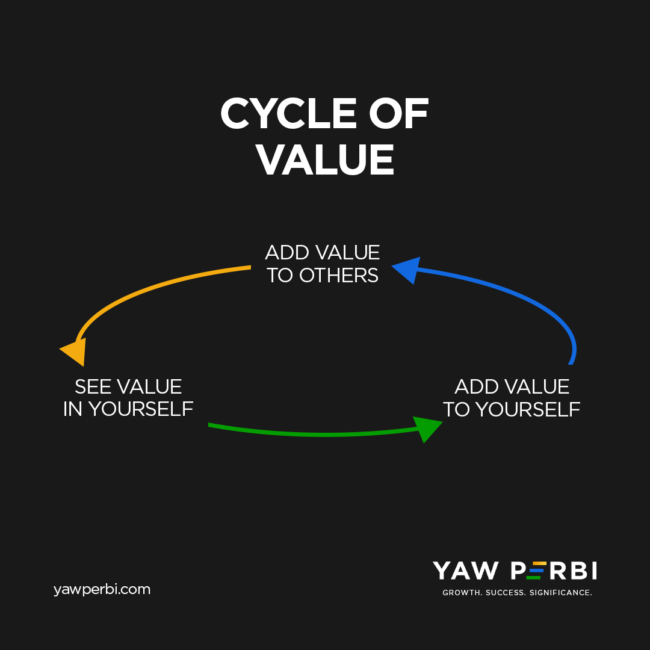
The Cycle of Value
Truly, truly, “you must see value in yourself to add value to yourself.” The author of The 15 Laws of Invaluable Growth calls this principle the Law of the Mirror. Author Denis Waitley put it another way: “Personal development is the belief that you are worth the effort, time, and energy needed to develop yourself.” Investment in your personal growth yields interest–not simple but compound interest–and it is a great deception to not significantly invest in yourself under the guise of ‘self-sacrifice’ for others when the real truth is that you do not see significant value in your own self to make that investment in you.
You are of immense value. This is not based on your net worth or network, salary or social status. It has nothing to do with your height or weight and whether or not you are photogenic and have a great social media following. You and I are of immense value simply because we are human, made in the image and likeness of the Great One. Theologians call this notion of being made in the image of God, imago Dei.
When as coaches we speak of adding value to your life, therefore, we are not implying you could be worth more or less as a human being but that you could develop the innate gifts, passions, dreams and personality traits you have to maximise your potential and impact. Many people, sadly, do not realize they are of immense value and worth that investment. They run around all year, every day, adding value to others through the goods and services they produce as workers but don’t make the time or put aside the money to grow themselves. I repeat: it is a great deception to not significantly invest in yourself under the guise of ‘self-sacrifice’ for others when the real truth is that you do not see significant value in your own self to make that investment in you. Not all so-called ‘self-sacrifice’ is actually ‘noble.’ Yes, “you must see value in yourself to add value to yourself.”
CHICKEN OR EGG
So which one comes first? Seeing value in ourselves and so adding value to ourselves or adding value to ourselves first and then beginning to see value in ourselves? John Maxwell says, “It doesn’t matter which occurs first. One feeds the other. What matters is that the cycle of value starts.”
In addition, adding value to others, making a difference in their lives, has been documented to lift our own self-esteem. As Maxwell puts it succinctly, ‘It’s hard to feed bad about yourself when you’re doing something good for someone else.” Under normal circumstances, “adding value to others makes them value you more” also. In fact, another aspect of seeing and appreciating our own worth comes when we add value to others. Hence the value cycle below.
THE REAL CAP AND REAL KICKER
Herculian governments, Machiavellian bosses, helicopter parents (and the list goes on) can all put a ceiling on our potential but by far our own self esteem is the most significant lid on our potential! Psychiatrist and self-esteem expert Nathaniel Branden put it succinctly: “No factor is more important in people’s psychological development and motivation than the value judgments they make about themselves.” “It is the lid on your potential,” Maxwell chimes in. “If your desire is a 10 but your self-esteem is a 5, you’ll never perform at the level of a 10. You’ll perform as a 5 or lower. People are never able to outperform their self-image.”
And the real kicker is this: the value we place on ourselves is usually the value others place on us. “If you put small value on yourself,” again says Maxwell, “rest assured the world will not raise the price.” I remember being interviewed for the presidency of a Canadian charity and the board requesting that I move my family from one end of the country to the other (and don’t forget, Canada is the second widest country on earth!). I did not feel that was the best move, literally and figuratively, for my family, our God-given purpose in the city of Montreal and even for my vision of expanding the organization beyond where it had been limited to in 25 years. Knowing my value I said “No, thank you.” I politely but clearly and strongly said to the august board: “If this move is that important to you, then I’m not your man for the job.” Needless to say, they went along with my decision and I had the privilege of serving in the role for eight years.
When I mentioned on social media this notion of how others (and indeed life) will only treat us according to the value we place on ourselves, my childhood friend Samuel in Minnesota, USA reminded me of a classic Jessie B. Rittenhouse poem that succinctly captures this principle:
I bargained with Life for a penny,
And Life would pay no more,
However I begged at evening
When I counted my scanty store;
For Life is just an employer,
He gives you what you ask,
But once you have set the wages,
Why, you must bear the task.
I worked for a menial’s hire,
Only to learn, dismayed,
That any wage I had asked of Life,
Life would have paid.
SO WHAT’S YOUR WORTH?
Everyone needs to find the happy middle between being selfless (as if only other people count) and being selfish (as if nobody else counts). If you don’t like what you’re reaping in life then check what you’re sowing. Do you see in yourself the value the Creator does? Do you believe in that value enough to invest in yourself to see grow exponentially, flourish and bless others? For real, there’s a whole wide world waiting to be impacted by you but truly, truly, “you must see value in yourself to add value to yourself.”

American Shitocracy and African Shitholes
‘Shit hole’ status is not the preserve of any people group, state or nation. Seasons change. Kingdoms rise and fall with terrific and terrible leadership respectively. Great civilizations have come and gone. If Africa continues on a trajectory of principle-centred, values-based, effectual leadership and America continues on her trajectory of shit-based leadership for long enough the tables will turn!

“I’ll be watching because history is going to be made,” were Trump’s inspirational words to ginger his soon-to-be-desecrating supporters who forced their way into the Capitol to interrupt the democratic transfer of power. Photo credit: Roberto Schmidt/Agence France-Presse — Getty Images
Bit by bit we’ve seen the shroud of so-called American exceptionalism come apart. Rent piece by piece, she’s revealing her warts to a watching world, stuck at home. What she’s done well for over 200 years to conceal—and not wash her dirty linen in public either—a combination of democratized social media, a TRUMPeting emperor with no clothes and a plaguing pandemic have conspired to expose. Lynchings like George Floyd’s are not new; it’s the handy smart phones and social media apps at the finger tips that capture and broadcast these which are.
Last Wednesday’s attempted coup d’état at the U.S. Capitol was the nadir of the last four years’ declivitous decline from apparent democracy to real shitocracy. I am not one to use the s-word; I’m only playing on the words of the supposed most powerful man on earth. Many aspects of the attack on the ‘people’s house’ by armed rioters a.k.a. domestic terrorists dropped my jaws (and kept my mouth agape) but the most shocking was literally the filthiest of all: desecration of the House with faecal matter, well-known in ‘shit hole countries’ as ‘shit bombing’. Just when you thought America could sink no further.
The shit-hole-country-conferring president of the Divided States of America inspired this group of shit bombers.

Thieves of democracy scaling walls like thieves do, as in the words of the New York Times, “largely unimpeded by police as they stormed the Capitol.” Photo credit: Jason Andrew for The New York Times
Let me tell America(ns) how we, Africans, got shit holed: LEADERSHIP! A long string of shit hole leadership like you’ve now gotten in the Black House (it’s only painted white and so-called but we know it was built by Blacks). If Africa continues on a trajectory of principle-centred, values-based, effectual leadership and America continues on her trajectory of shit-based leadership for long enough the tables will turn! You know how I know? Because “everything rises and falls on leadership,” E-V-E-R-Y-T-H-I-NG, shit and all. And that is a principle; a timeless, fundamental law of the universe that is no respecter of persons: red or yellow, black or white.
‘Shit hole’ status is not the preserve of any people group, state or nation. Seasons change. Kingdoms rise and fall with terrible and terrific leadership respectively. Great civilizations have come and gone. And I mean, greater civilizations than America, and that dominated for much longer than the toddling USA. America could be tomorrow what we call “ancient Egypt” today. Or even the beggarly Greece today, yes, Socrates, Aristotle and Plato’s Greece of yestercentury. In the last decade Portugal found itself borrowing money from her former colony Angola.
Meanwhile, my Ghanaian-Canadian children today wonder what is so ‘Great’ about Britain. Brexit? As for America, in the last few weeks we’ve spent more time at our Family Altar repeatedly praying for political peace in America and for the eradication of ignorance and disease (COVID-19) there than we have prayed about any of these for Africa!
Now to my fellow Africans. In the light of how backward America has proven to be recently, perhaps it is beginning to dawn on you that we may not be as backward as they (and some others) would like us to think! After all, when our ancestors were building pyramids their European forebears were but Barbarians (note: barbarian or barbaric is still not a fluttering word in the English dictionary today).
At the very time when there were prolonged pre, para and post electoral tensions in America, even with a sitting president refusing to concede but rather raising false alarms of a rigged election, Ghana figuratively and literally came from behind to vote, certify results within 72 hours and has already sworn-in a new president (an occasion the American president nominated American officials to attend). Now, look who’s shit hole!
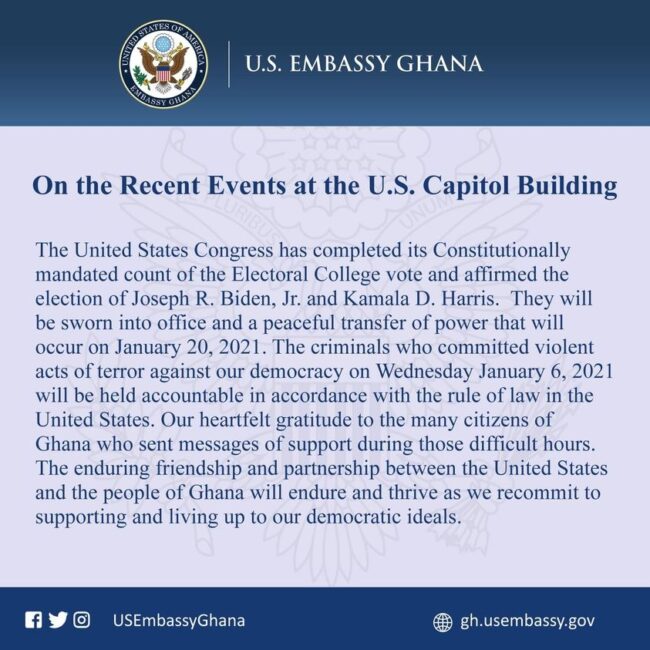
No one would’ve imagine such a notice from the U.S. Embassy in Ghana four years ago! “Our heartfelt gratitude to the many citizens of Ghana who sent messages of support during those difficult hours”? Wow!
Which is worse: being called shit hole or being shitty? It was America’s shitocracy that christened African countries as shit hole. But neither shitocracy nor shit hole is good enough for Africa or America. I have substantial interest in the prosperity of both peoples on both sides of the Atlantic–and so does the whole world stand to benefit. So upward and onward with godly, principle-centred, values-based, effectual leadership for the benefit of our peoples and to the glory of God. No more shit–shit holing, shit hollering or shit bombing. We were made for so much more than this.
Africa! America! African-Americans, arise, clean up and shine! Let our worst years be the last four; and our worst days among the last four too.
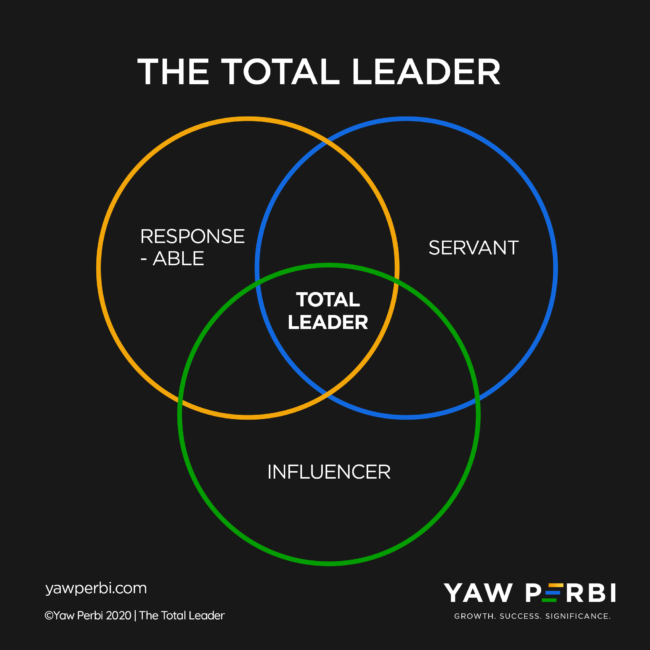
All these politicians are falling over themselves just to SERVE us?
I doubt it. I am skeptical that all these politicians are falling over themselves just to serve us, we the people. After a couple of decades of being a student of leadership, including a Masters in Global Leadership, I came to this simplicity at the far end of complexity that leadership is basically response-ability, service and influence. A total leader is and does all three. But even service has different degrees.
A few years ago some people were very cross with me after I mentioned on a live television interview on Good Evening Ghana that the then Ghanaian president wasn’t much of a leader (in terms of influence). He was very response-able, no doubt. I knew that quite well personally since we used to live in the same residential area and attended the same church. The honourable gentleman was a great servant as well–even as vice-president he was still volunteering to do such ‘menial’ tasks in the community. Such a role model in humility. But his charisma and ability to make things happen in and through others (influence) left much to be desired.
Of course there are those who are great public influencers but can’t even be response-able in their own marriage or toward their children. Such incomplete leaders are asked by the lawyer-turned-preacher, Paul, in the ancient texts, not to vie for leadership in the church. Here is the rhetorical question the trained lawyer poses: “for if someone does not know how to manage his own household, how will he care for God’s church?” A total leader is response-able, serves and influences. Now a focus on servanthood.
SERVANT-LEADER TAUTOLOGY
Ideally, the term ‘servant-leader’ should’ve been tautological as a leader necessarily must be one who serves. Unfortunately, more often than not, it isn’t so. Leadership is often anything but service. In fact, leadership is so much more synonymous with influence that when Robert Greenleaf introduced the term servant-leader around 1970 he literally mean servant-influencer. Here’s what he says in his The Servant as Leader essay back then:
The servant-leader is servant first. One wants to serve first; then one aspires to lead [influence]. This is sharply different from one who is leader [influencer] first, perhaps because of the need to assuage an unusual power drive or to acquire material possessions. A servant-leader focuses primarily on the growth and well-being of people and the communities to which they belong. The servant-leader shares power, puts the needs of others first, and helps people develop and perform as highly as possible.
THE MYSTERY OF MINISTERS
On a recent Lions Inspire Cubs hangout with children (7-14 years) to introduce them to leadership early, some of the cubs literally gasped when they heard me say that the ministers of state that throw their weight around are actually our servants. “Whaaat?!” Yes, minister is the same word as servant. Who could blame these children, for they have hardly seen as humble servants neither the ministers in politics nor ministers in pulpits. I often quip that if I ever became president of a nation I would change the term ‘ministers of state,’ in order to hear it afresh and for shock effect, to ‘servants of state.’
The last couple of months have been a heated political season on both sides of the Atlantic, particularly with my neighbours to the south (the United States border is barely 45 minutes from where I live in Montreal) and in my homeland Ghana. As I’ve seen the passion and commitment in the campaigning, counting of votes, recounting of votes, challenges in court etc. I can’t help but ask: All these politicians are falling over themselves just to SERVE us, we the people? Perhaps a very tiny fraction but largely no; it is mostly to serve their parochial interests. Even for those response-able influencers who are genuinely laying themselves down to minister to us as servant-leaders may I ask: what kind of servant will they be?
SERVANT? WHAT KIND?
Just as “love” is just “love” in English but has at least four variants in the Greek, the ancient Hebrew text is rich with a variety of words for “servant.” Four of these different hues of servant are Ehbed, Abad, Sakyir and Sharath. Let me explain.
1. LOVE SERVANT (Ehbed): This type of servant is totally sold out to those (s)he serves, not so much out of obligation and duty or for financial compensation but pure love. The Hebrews of old were not allowed to enslave their own. If any of their own people—Hebrew men or women—however sold themselves to someone (usually out of dire socioeconomic hardship) they were to serve their fellow Hebrew employer only for six years maximum. In the seventh year they must be let go free, liberally loaded with gifts of livestock, grain and wine. But there was a caveat: “…if your servant says to you, “I do not want to leave you,” because he loves you and your family and is well off with you, then take an awl and push it through his earlobe into the door, and he will become your servant for life (you may read the entire text here). The love servant is one at the complete disposal of the person(s) they serve out of love. Are you (or those you’re voting for) at the complete disposal of the people out of love?
2. SACRIFICIAL SERVANT (Abad): This one has given up a lot to serve. They are characterized by complete sacrifice. This is typically a servant who gives up personal rights, including inheritance, in order to work in the fields or tabernacle (see Numbers 18:7 and 23). The Levites of old were abads. As The Maxwell Leadership Bible puts it, “in a similar way, leaders must sacrifice their rights and stay surrendered to the cause.” Are you this kind of sacrificial servant-leader?
3. HIRED SERVANT (Sakyir): This is the quintessential ‘paid professional.’ In other words, a ‘hired hand.’ Irrespective of what they do, there is a clear understanding that they are hired per hour/day/week/whatever and will receive due compensation. Whether it is fair wages or not is not the object of this discussion; their service is paid for. Remember the love servant conversation above (under ehbed)? When a Hebrew sold themselves to work for another Hebrew they were to be treated as hired hands and then contract automatically ended after six years. It is after this they can choose to become a love servant (see Leviticus text). Unfortunately, the closest thing to a servant I see with many ministers of state and church alike is that of a ‘paid professional’. And you know corporate leaders are not there to serve either when they pay themselves fat salaries and juicy bonuses on the backs of suffering employees, even when their companies are struggling for survival! It’s the money and the trappings of the position that is the draw, not love (ehbed) or sacrifice (abad).
4. MENIAL SERVANT (Sharath): This is the down low of service. This is the most beautiful when done not because the servant-leader has no more nobler service to do but a choice to go down low for the sake of raising the people/mission up high. Sharath is the Hebrew word used to describe Joseph’s servanthood in prison (see here) and Joshua’s attendance to Moses as his aide (see Exodus text). A true leader must serve the people and the cause, irrespective of how down low the role may be. By the way, this same Sharath word in certain contexts can stand for worshipper.
MODELS: ANCIENT & MODERN
Politicians like Nelson Mandela are too few. I remember as a boy when he was released from prison in February 11, 1990 after 27 years! The whole town where I lived erupted with joy and the sound of cars honking was deafening. Mandela sure had influence–he was a leader. Of that day of freedom he said, “As I walked toward the prison gate and was among the crowd, I raised my right fist and there was a roar. I had not been able to do that for 27 years. It gave me a surge of strength and joy.”
But you know what else he had? The spirit of servanthood. That same evening when he spoke to a large crowd at the Grand Parade in Cape Town, he said, “I stand here before you not as a prophet but as a humble servant of you, the people. Your tireless and heroic sacrifices have made it possible for me to be here today. I therefore place the remaining years of my life in your hands.” I don’t know about you but I can’t help seeing an ebed, abad, sakyir and sharath all wrapped up in one in the man, his words and works–from prison to president.
The ultimate example of leader as servant is the greatest leader who ever lived, Jesus Christ. He called himself ‘Son of Man’ and did not just ‘talk servanthood’ but walked the talk. Anyone who could teach as he did and perform miracles and draw crowds of 15,000 some two millennia ago without social media sure had influence. It is he who called his followers who were jostling for political power, to sit at his right and left in their perceived imminent government of Jesus, and said to them:
“You know that those who are regarded as rulers of the Gentiles lord it over them, and their high officials exercise authority over them. Not so with you. Instead, whoever wants to become great among you must be your servant, and whoever wants to be first must be slave of all. For even the Son of Man did not come to be served, but to serve, and to give his life as a ransom for many” (Mark 10:42-45).
I can’t speak for leaders of other faith persuasions but for Christ-followers there is no choice but to love and live and lead like the ultimate servant-leader. Paul writes, “In your relationships with one another, have the same mindset as Christ Jesus.”
CONCLUSION
I initially wrote this piece with a holier-than-thou disposition thinking I was a reasonably good servant-leader myself only to get my bubble burst by my dear wife who gave me painful feedback that I needed to hear: “At home you are more like a boss-servant–a boss who tries to serve. You serve alright but only when you want and how you prefer to.” Ouch! I’m eating humble pie right now.
In the words of my mentor John C. Maxwell, “Leaders must never forget that God calls them to serve. If our Lord [Jesus] could wash His disciples’ feet as a sharath, then how could we frown at becoming an ebed?” So you too, take a long look at the list of four servant types above and a good look in the mirror: which kind of servant are you? Then linger awhile over the lengthy list of those longing for your vote and see whether they are preoccupied with status, salary and stuff or serving. True leaders serve their people towards their purpose; not their parochial interests. I am a recovering boss-servant.
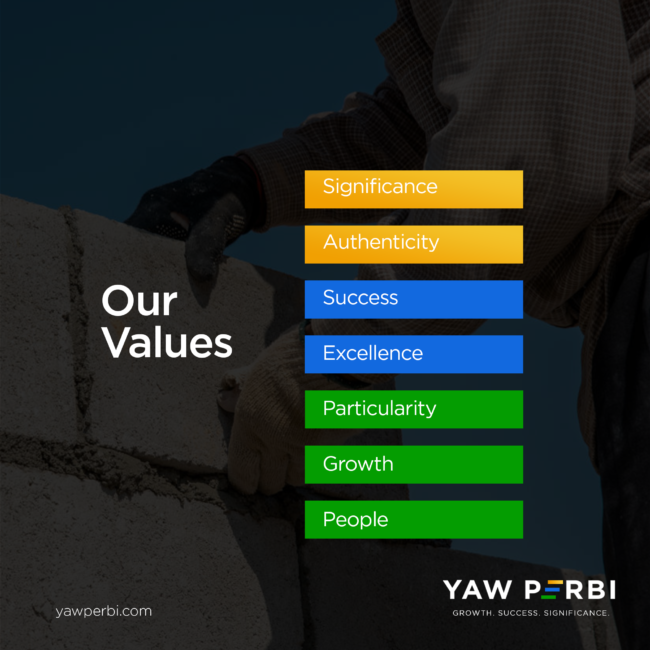
What’s Good? | A Values Convo
A common greeting among today’s cool people is “what’s up?” to which one may sometimes get some really sarcastic answers from uncool people (lol!). A not so common greeting would be, “What’s good?” That would be slang for an invitation to a values conversation. I’ll explain.
For the last couple of weeks I have been raving about the importance of vision, mission and values. My thesis is that these three are so life-giving, life-forming and life-determining that they are aptly described as DNA, be it personal or corporate. I did share some examples of vision and mission statements of companies as well as my own family’s, encouraging professionals to put in the time and work to hone these and commit to them to the same degree they do their corporate work (if not even more). Now a final word on the third piece of the DNA: values.
WHAT ARE VALUES?
Values are what matter most to us—what we value. Yes, our values are literally what we value. They are what we consider to be good, what’s good. What matters most to us about the kind of people we are, the type of work we do and how we behave as we do the work are our values.
Values are the standards a person, family or organization holds to be most important that cause individuals to make decisions and act the way they do. As a mentor of mine puts it, values “represent how a community aspires to act or function as it carries out its mission in pursuit of is vision.” I like this element of aspiration—perhaps we may not have quite attained that standard of behaviour or character or whatever ideal yet but it’s on our books to keep reminding us to keep stretching towards it.
So! In summary, if vision is what we want to SEE and mission is what we will DO to see what we want to see then values determine HOW we will behave (be and do) as we do what we want to do in order to see what we want to see.
PEELING BACK THE LAYERS
Whether ethnic or corporate, culture is basically how things are done here a.k.a behaviour. What many do not realize is that BEHAVIOUR—“what’s done”—is only, quite literally, the tip of the iceberg (which is usually about 10% of the actual size of the iceberg!). Behaviour is only what is seen and experienced on the outside—from dressing to speaking. It’s the soil/crust of the earth (another metaphor), if you like.
Beneath behaviour are the VALUES—“what’s good”—informing it. Digging deeper beneath sea level or soil level we will find the BELIEFS—“what’s true”—or “faith assumptions”, that are determining these values.
Deepest of all, at the bottom of the iceberg or at the core of the earth is our WORLDVIEW—“what’s real.” That is the root of the fruit we see called behaviour or culture.
Whether it is individuals or families, churches or corporations, how many times haven’t we attempted to change behaviour without digging all the way to the worldview source?
VALUES ARE NOT PRINCIPLES
I am of the Covey school of thought that values are not synonymous with principles. Principles are timeless, universal laws that govern everything (from physical laws of Physics to spiritual laws) but you can choose to value them and/or have values based on those laws or not. For example, there is a certain ethnic group I have come across that does not give children eggs (behaviour/culture). Undergirding this is not valuing eggs in children’s diet. But underlying this further is a belief that the children would become bald (like an egg) and become thieves (or both). At the very core of this ethnic culture is a certain animistic worldview that produces the belief that leads to the value and produces the behaviour of not feeding children eggs.
This value, no matter how cherished, goes against the principles of nutrition. Breaking the principle because of this value results in protein-energy undernutrition in the community whose two primary chronic forms are kwashiorkor and marasmus.
SO WHAT’S GOOD?
It is absolutely essential that everyone, personally and corporately, determine their values. Values comprise part of the DNA that gives, forms and determines the kind of life you lead. But like the chemical bases that form DNA, it is worth examining the formative beliefs and underlying worldview that bring forth these values. In the end, what’s good is determined by what’s core.
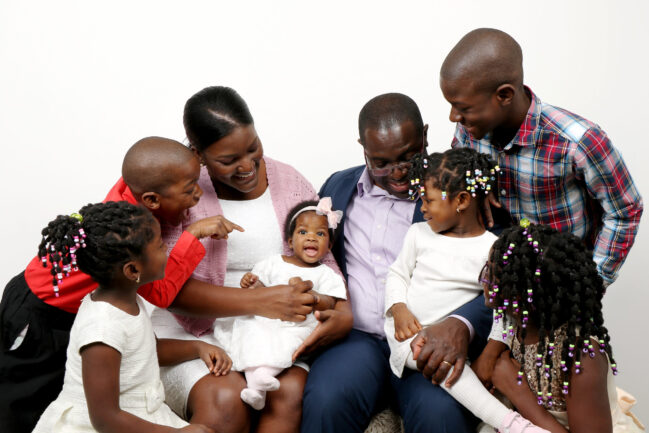
Family DNA: Vision, Mission & Values
What if we took our families as seriously as we take our corporate work, beginning with crafting solid family vision and mission statements and clearly outlining our family values?
When I was still in my late teens and learnt about mission statements from The 7 Habits of Highly Effective People I was über excited! I was an eager beaver, wanting to learn more and actually crafting one for myself. In addition, I was eager to teach everybody who would listen to craft one too. In fact, a large part of why and how The HuD Group was born was because we wanted to inspire and empower young people to discover their God-given purpose and reach their full potential using tools like personal mission statements. Then I tried to convince my parents to work with my siblings and me to create one for our family. Let’s just say, I did not succeed.
Most of us work in places that have vision and mission statements and a slew of values. Those of us who are C-level leaders are responsible for recasting vision constantly, clearly and creatively as well as rehashing our mission and values. I would surmise the majority of us take this sacred duty of leadership very seriously. How come we don’t do same for our families? Most smart, skillful and dedicated professionals I know have no family vision and mission statements and haven’t bothered to distill the family’s values, let alone clearly state these and have them written down.
Yet as already asserted in a previous article, vision, mission and values are the DNA of both individuals and organizations as they are really of life-giving, life-forming and life-replicating essence. So it is with families. While every family has its physical DNA passed down from ancestors, how about the important metaphysical DNA represented by our families’ vision, mission and values?
Today, I wish to share with you my own nuclear family’s vision and mission statement for our home. We have a broader vision and mission that encompass not only our home but also all the corporate and charity ventures we’re involved in but what I’m sharing here is specific to our home.
VISION FOR THE PERBI HOME
An INCUBATOR for hatching godly, effectual leaders for the mission of God.
MISSION STATEMENT OF THE PERBI HOME
Ours is a family in which God delights because God is the centre of all activities in this household. Every ordinary activity becomes worship by practising God’s presence.
We are first and foremost Christians thus sharing fellowship and building each other up by lifestyle is a matter of course, and if necessary doing so with words. The flame on our Family Altar shall always burn brightly.
In our household, Jesus Christ is the standard of behaviour. This is the Potter’s house, where God by His Spirit moulds members and guests alike to conform to the image of Christ in attitude, thought, word and deed. The Word of God is our family constitution.
Ours is a neat, comfortable, cosy, Spirit-filled home; an inspiring environment which is as stimulating as is peaceful, is grace-filled, God-honouring, purpose-driven, paradigm-shifting, principle-centred, and character-based. Any entertainment must be wholesome, building & beneficial.
The Perbis’ is a home full of warm, smiling, serviceable and humble people who will at all times be of use to each other and to all of God’s people in a holistic manner.
This is a missionary family—living missionally, raising, receiving, sending and supporting carriers of the gospel of Jesus Christ.
That it will always be said of our home, our legacy, all to the glory of God: the standard of a Christian marriage, the epitome of a true Christian family.
CONCLUDING ENCOURAGEMENT
At the start of each week, as we round up our weekly sabbath, we remind ourselves of our vision and mission statement. Even our three-year old knows what our vision is. She can shout “incubator!” Not only are our values embedded in our family mission statement, the children find the English version of their names in there as well.
This is holy work and I insist that every coaching client of mine works with their spouse and children (if they’re grown enough to contribute) to work on crafting solid family vision and mission statements and clearly outlining their family values. And of course, a key thing is to ensure that their personal and family values align with who they’re working for/with in the corporate world. No DNA, no life. Good DNA, good life. Bad DNA, bad news. Let’s take our families as seriously, nay, even more seriously than we do our workplaces. After all, companies come and go but family is forever.


